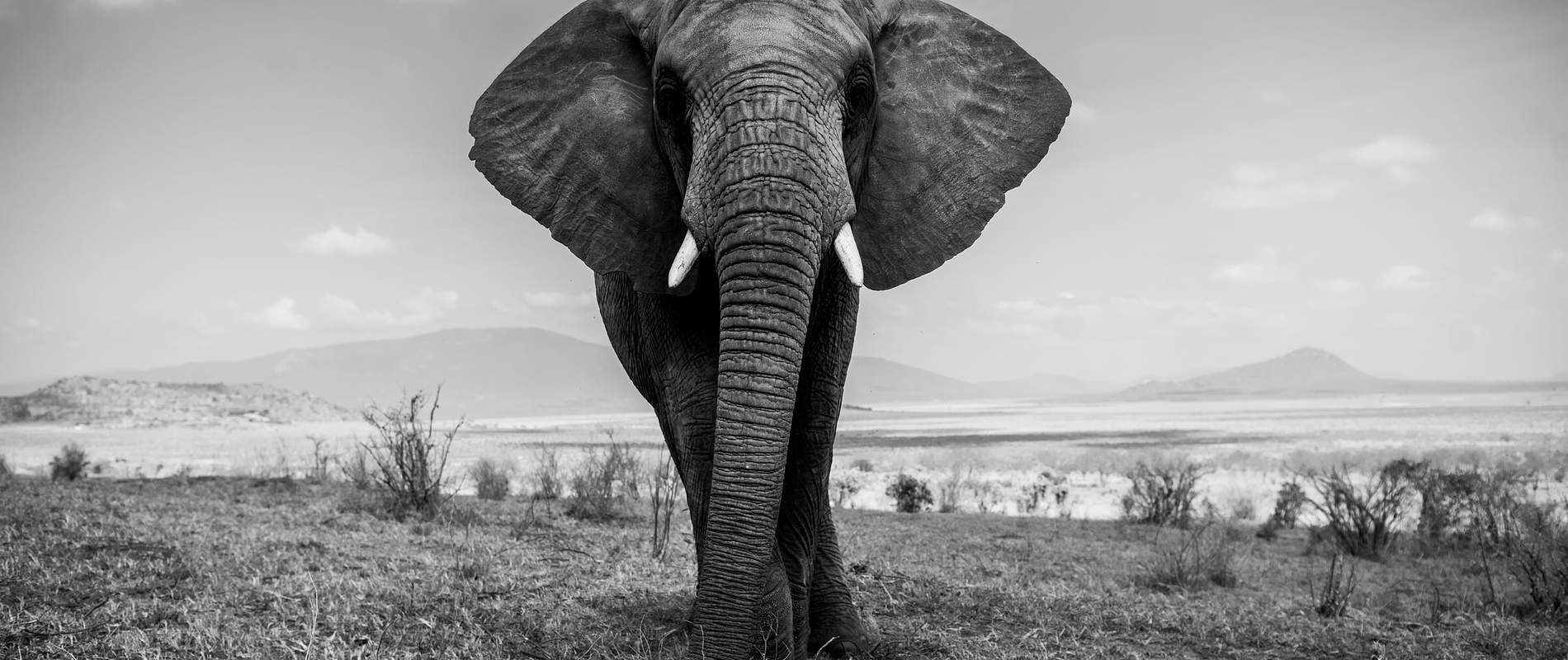Earth is a shared home. According to current estimates, 8.7 million species of plants and animals live on our planet. Humans aren’t just one in a million — we’re one in close to nine million.

And yet, in many parts of the world, it doesn’t feel that way. Wilderness has been replaced by concrete, land stitched together by humming networks of roads and train tracks. Where there were once trees stand buildings, from simple homesteads to towering skyscrapers. Planet earth feels more like planet human.

But there are places where nature still reigns. Kenya is home to many of them, lands of endless horizons, interrupted only by towering baobabs or the silhouette of an elephant moving across the plains. These habitats make us remember earth as it once was, a true home for our planet’s creatures.

Our founder, Dame Daphne Shelrick, once said, “All life has but one home — the earth — and we, as the dominant species, must take care of it.” This is our privilege and our responsibility. Many of our planet’s greatest threats — climate change, deforestation, pollution, to name a few — are driven by human actions. In our position of power, it is up to us to both create a better planet and mitigate the problems we created.

As a conservation organisation, this mission is at the heart of everything we do. However, given the past year, it is also something we are reflecting upon with even greater intensity. A drought of horrifying proportions brought about an unprecedented rise in animal rescues between 2021-2022 and even continuing into this year. We had to expand capacity at all five of our orphan units to contend with the influx of elephants who entered our care.

All well, an elephant can live upwards of 70 years. The orphans we rescued during this period range from a few days to a few years old. They are just beginning the journey of life — one that could extend well into the year 2090 and beyond. As we nurture them through their infancy, we are constantly looking forward. Just as we think about the world we want to create for our children, we must also think about the world we want to create for elephants and all wildlife.

Saving our planet is a monumental task. However, as we are reminded every single day, our actions can have a rapid impact. Time and again, we have witnessed how quickly concerted conservation efforts bring ravaged habitats back from the brink. The Kibwezi Forest, KARI Ranch, vast swatches of Tsavo, and now, the 2 million acre frontier of Galana and Kulalu Ranches — these are landscapes that your donations have helped us heal. They will also form the rangelands of our orphaned elephants, and the generations they go on to raise in the wild.

Because of your support, we are able to take on ambitious, large-scale conservation initiatives. This work has never been more urgent, as human actions continue to chip away at our wild world. Again, earth is not our home; it is a shared home. It belongs to us just as much — but no more — than it belongs to the elephants, giraffes, lions, dik-diks, weaver birds, and millions of other species who are also building their lives here. Together, we can ensure it remains a home for all of us.
